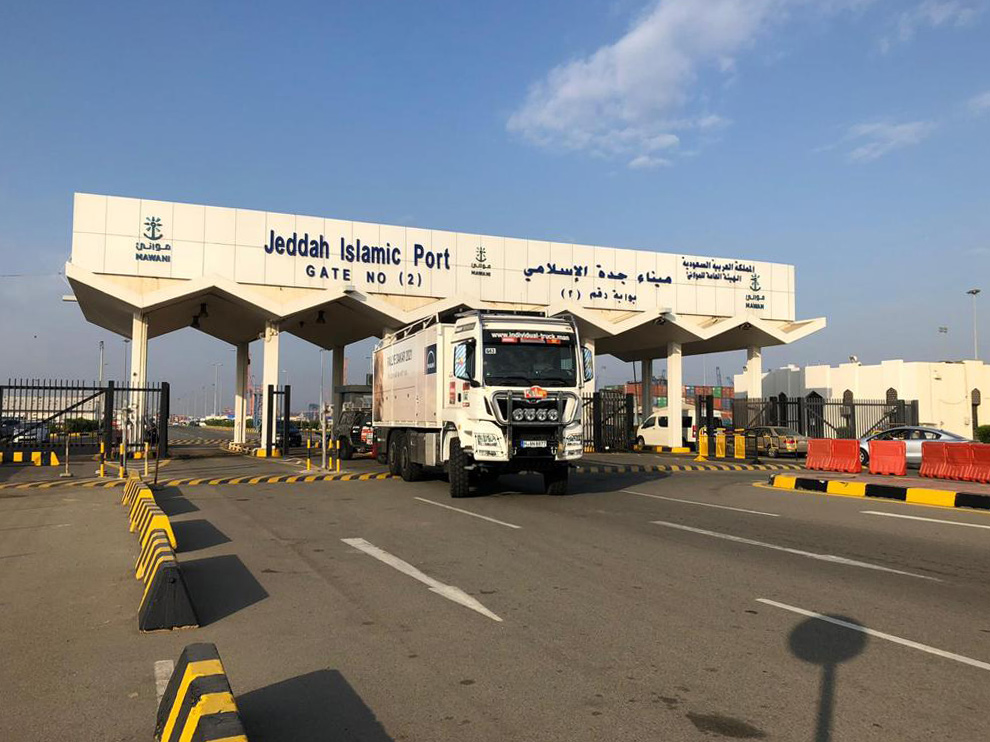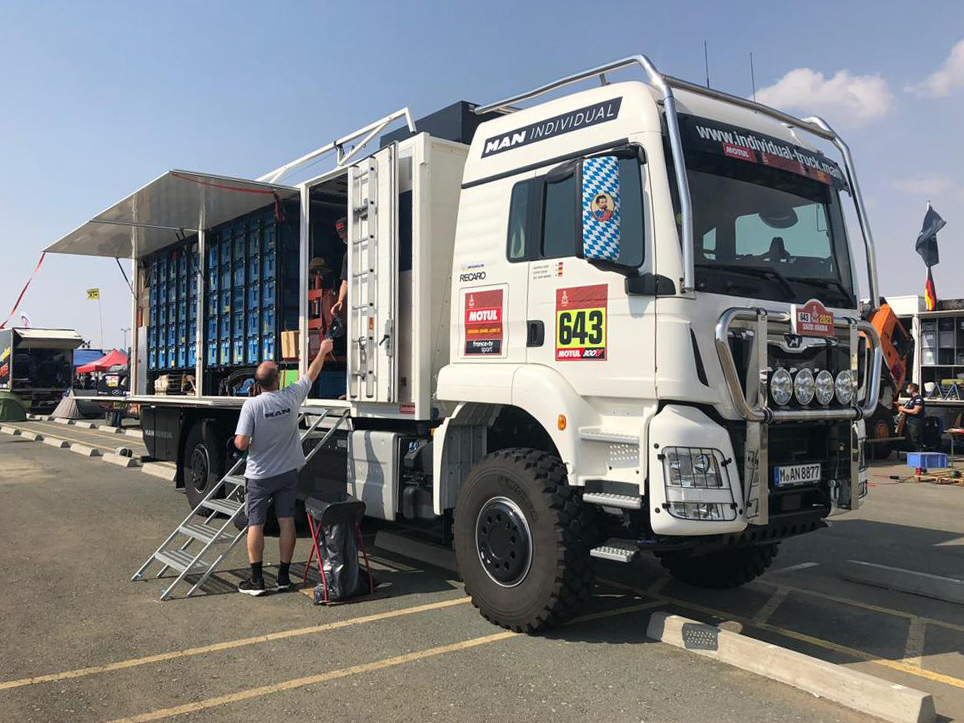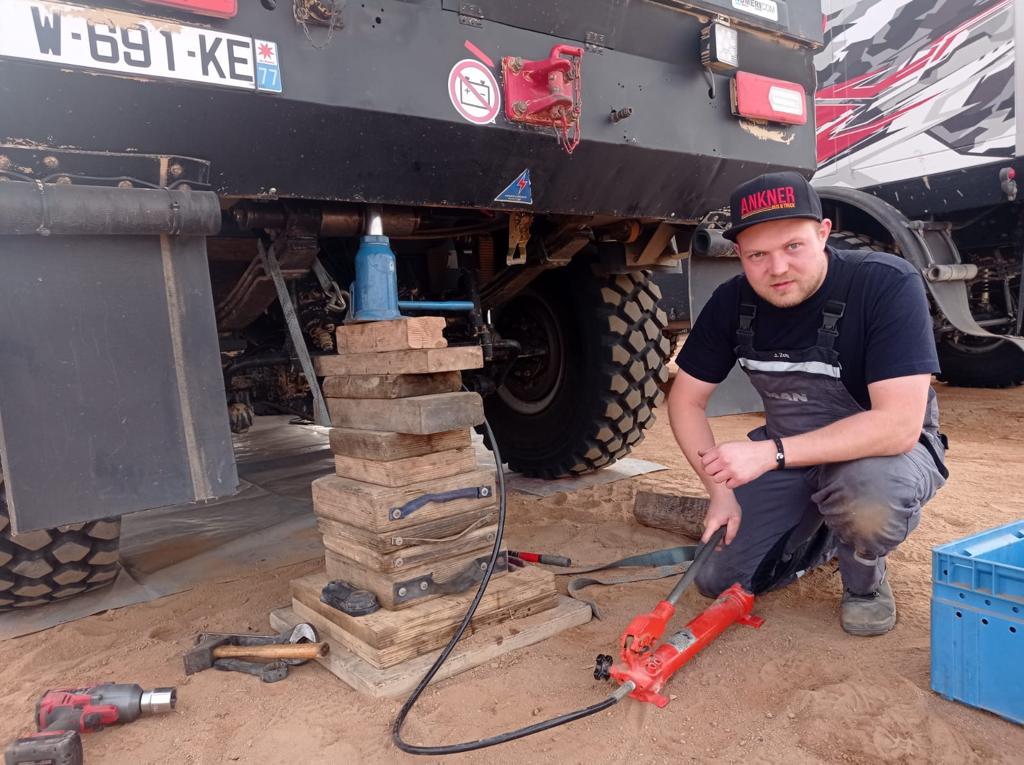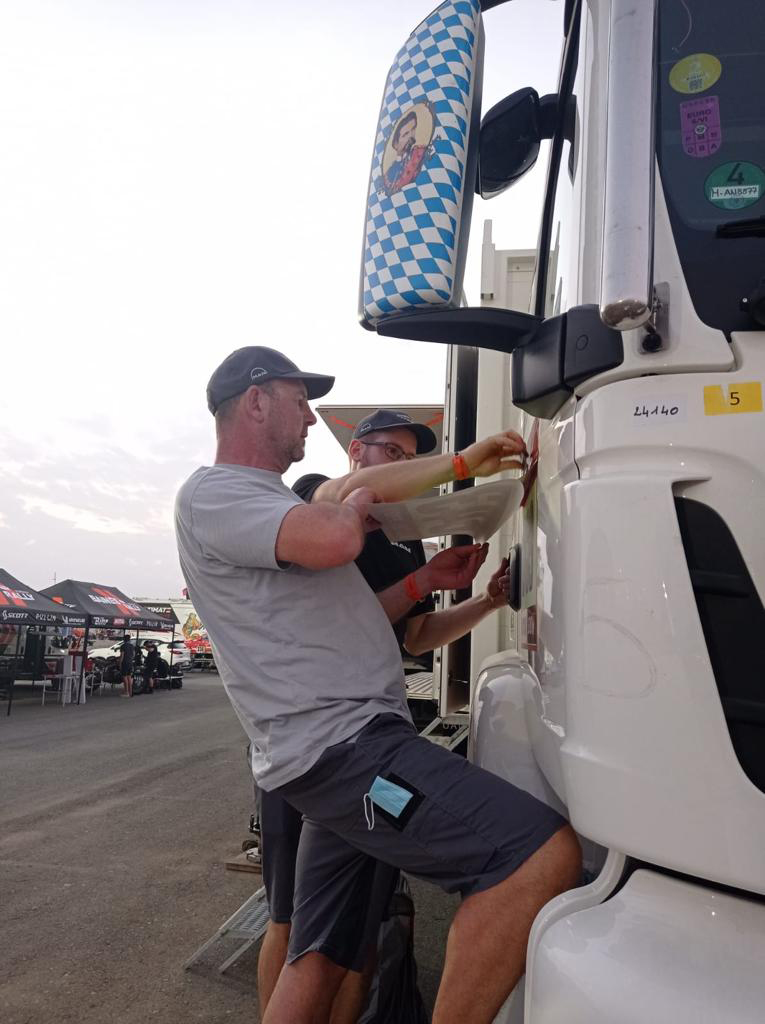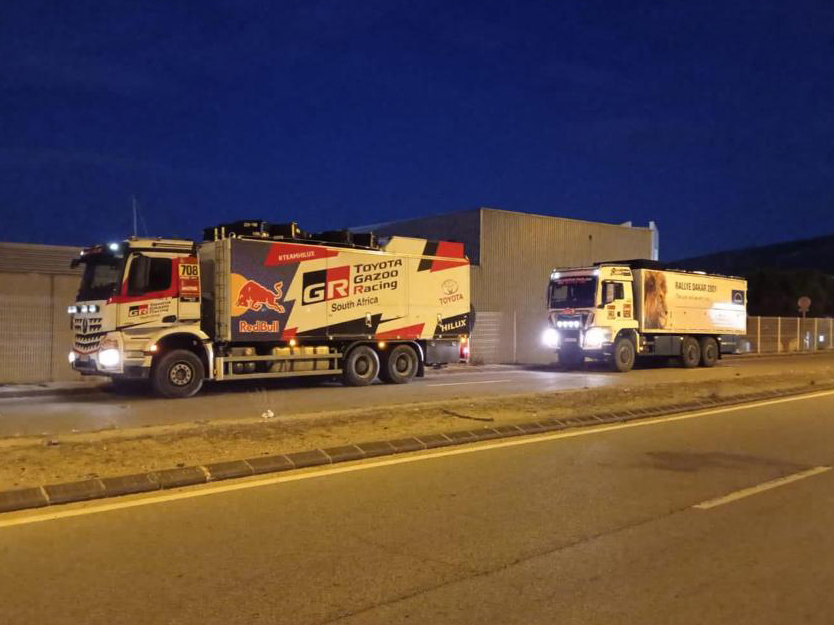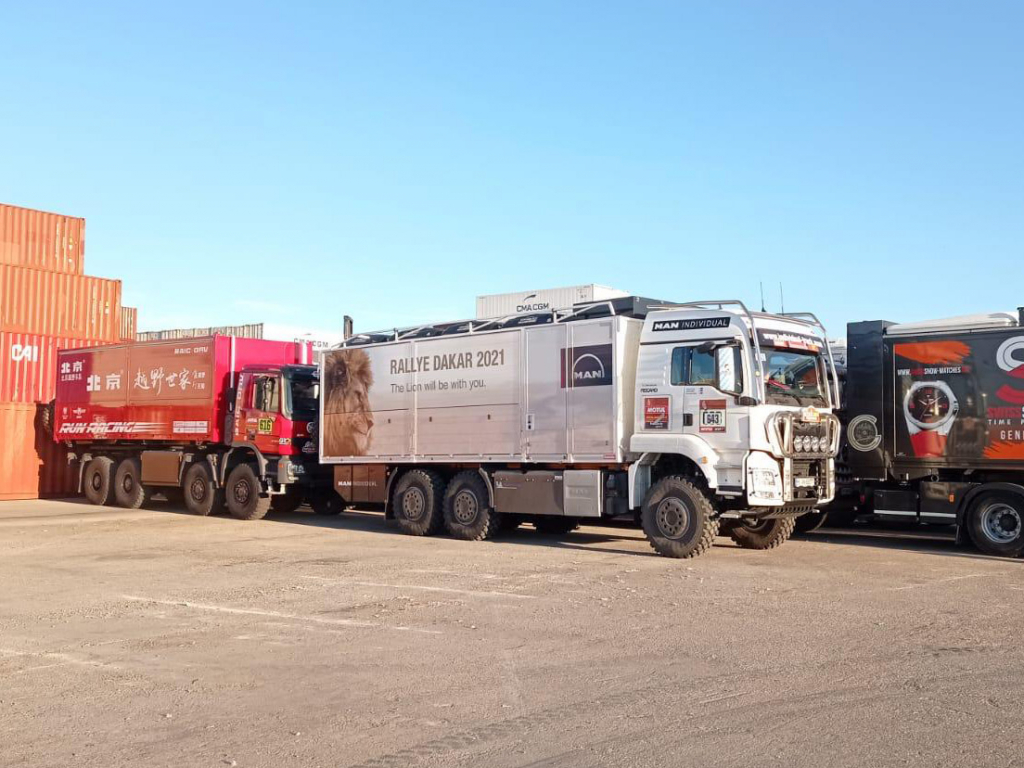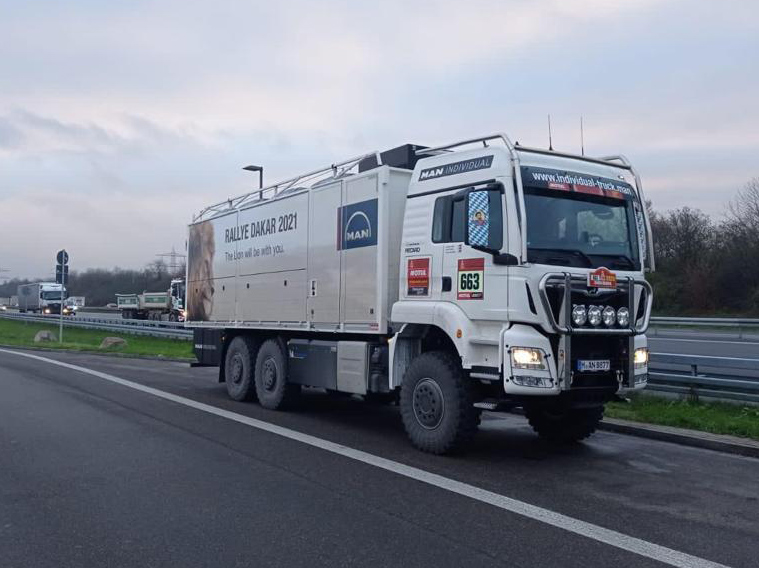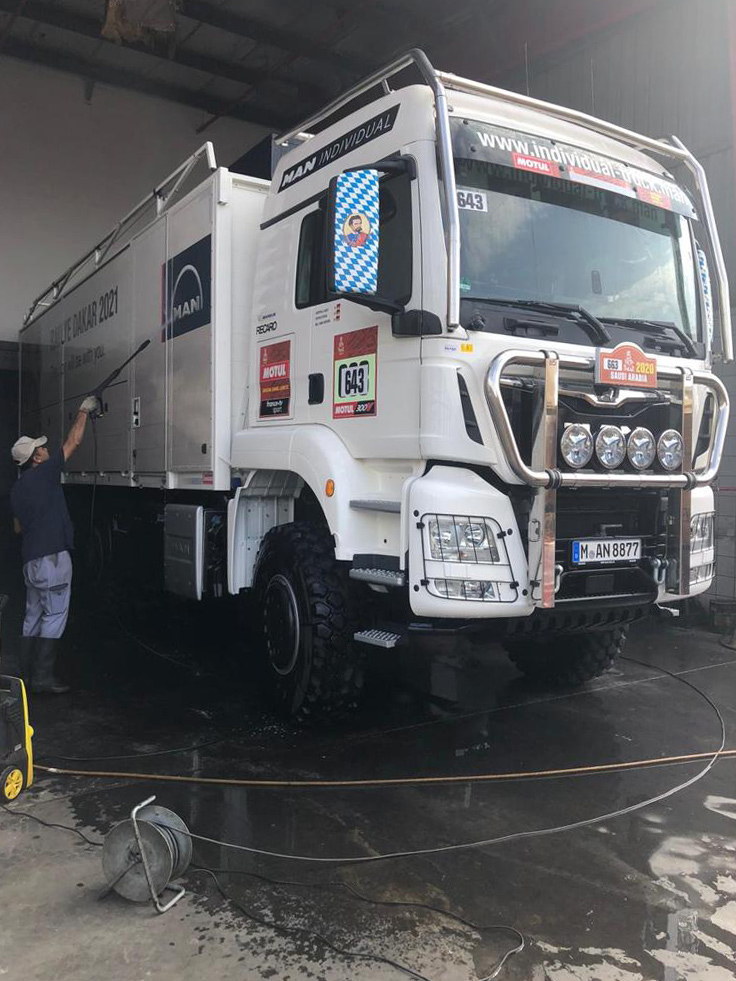
Last-minute decision for Dakar
It was a spontaneous turn of events that allowed Johannes Zotz to take his place in the MAN service team shortly before the 2021 Dakar Rally. In this interview, he tells Trucker’s World what he took away from the great race through Saudi Arabia.
“I’m in.” When Johannes Zotz – an automotive electrician at MAN – was asked at short notice whether he could stand in for Josef Kreppold in the MAN service team for the Dakar Rally, he immediately agreed. At the end of November, shortly before the trucks were shipped from Marseille, he joined the MAN crew, which also includes previous Dakar-goers Hans-Werner Nell and Stefan Echter, who took part for the first time last year. Since there was not much time to prepare, Johannes’ teammates gave him a fast-track briefing on the vehicle, teaching him how to pick out spare parts and where to find which tools. Josef and Stefan also told him what problems there were at previous rallies in his area of specialisation – electrical systems – and what he might have to be prepared for.
“It exceeded my expectations”
Since it would be Johannes’ first time at the world-famous race and he had no other rallies to compare it with, he was absolutely thrilled to be there for the event. This could not even be dampened by the stricter conditions and rules that have now changed the way things are done at the Dakar due to COVID-19. Before the team was allowed to start, they had to arrive earlier than planned to take a coronavirus test at the airport, then spend two days quarantining in a hotel. Only after another COVID test 48 hours later and an additional period in quarantine was it certain that everyone from the MAN service team could be there for the race.
“Essentially, those who were inside couldn’t get out,” Johannes says, describing the situation on the ground. The bivouacs were fenced in and guarded by the police, with sleeping exclusively confined to these bubbles and contact with the local population kept to a minimum. Nevertheless, the 30-year-old was still able to get a feel for the country and its people. “When we were on the trail and made stops to refuel, for instance, people would come up to the vehicle to have a look and take pictures.” The landscape also left a lasting impression on Johannes. “The terrain would be stony, mountainous and barren one second, then sandy dunes would suddenly crop up. Then we’d be back heading through lush green areas, with beekeepers and flocks of sheep,” he recalls fondly.
Hammering and working away all night long
But it is the event itself that sticks in his mind most vividly: “Huge things were achieved by both man and machine over those 13 days. We covered hundreds of kilometres every day before the real day’s work started in the evening when the teams came to the bivouac.” Johannes points out that the repair work sometimes went on until four or six in the morning. Due to the background noise at night, even the team members who had the chance to rest got little sleep in their pop-up tents on the roof of the service truck. “Personally, I was so excited the whole time that I didn’t mind the lack of sleep at all,” Johannes reveals. “It was only once I’d got back home that I noticed I was absolutely shattered.”
That should come as no surprise, given the challenging tasks on the agenda during the race. The mechanics in the service teams have to be creative, demonstrate problem-solving skills and put their technical aptitude to work. “Complicated tasks become even more complicated in the context of the rally,” Johannes succinctly summarises. One example of the repair jobs to be performed was a service truck that had failed to start before being shipped from France, which ultimately had to be towed onto the vessel. Because it had been left in first gear, the clutch, clutch pressure plate and flywheel were heavily damaged. “After the customer had procured spare parts at the service outlet in Jeddah, we removed the vehicle’s entire gearbox and got it back in full working condition for the Dakar. We completed that complex repair without a workshop or a pit on a very hot, 35°C day,” Johannes explains. The MAN service team was also able to achieve good results on all the other jobs, large and small, making Johannes’ Dakar record a fully positive one. And perhaps even better than that, one thing is certain for him as he looks back on his first rally experience: “If the opportunity came up again, I’d be back there in a heartbeat.”
